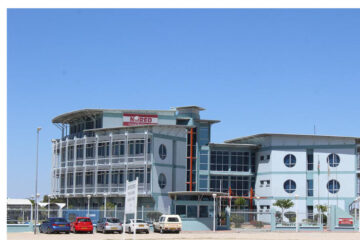Martin Endjala
Despite grappling with financial challenges, the Windhoek Municipal Council has set a target to provide electricity to 4,000 informal households over the next few years, necessitating a budget ranging from N$15 to N$20 million.
Deputy Mayor of the city council, Magdalena Lombardt, made this announcement last week during the inauguration of the informal area electrification project in the Khomasdal Constituency, specifically in Otjomuise Extension 6 and 7, phase two.
Lombardt disclosed that the council has approved a revised five-year electrification plan to guide the implementation of Electrification Projects for the next five years (2023-2028), with an estimated target of 4,000 households during this period.
However, a shortage of funds to execute the plan has led the city to engage with various potential financial institutions for grants to support the project.
Lombardt reported that thus far, a total of 20 households were electrified during the previous financial year, and the remaining houses will be completed upon the appointment of an Auxiliary Unit Rate Electrical Contractor, expected to be finalized by the end of October 2023.
To date, approximately 3,515 service connections were successfully established over the last five years under the previous 5-Year Electrification Project Plan, which concluded during the 2022/23 financial year.
The earlier electrification projects received funding from the Ministry of Urban and Rural Development and NamPower, amounting to a combined capital investment of N$45 million.
Ivan Skrywer, a Management Committee Member and Chairperson of the Formalisation of Informal Settlements and Integration of Groot Aub Advisory Committee emphasized that electricity is one of the most crucial basic services that the city must provide to its residents.
Skrywer asserted that the electrification project undertaken by CoW (City of Windhoek) demonstrates the city’s commitment to achieving its vision of becoming a compassionate and sustainable city by 2027.
He acknowledged the city’s financial constraints but stressed the importance of striking a balance between perceptions and reality as leaders. Skrywer further stated, “It is essential to challenge the status quo and present narratives that reflect the current plight of our residents today.”
He expressed his dismay at witnessing communities, even after 33 years of independence, resorting to collecting firewood and students studying under candlelight or streetlights.
He called for unity among leaders and communities to improve living conditions and rekindle hope for future generations.
He also noted that providing basic services in informal areas could potentially encourage the emergence of more informal settlements.




